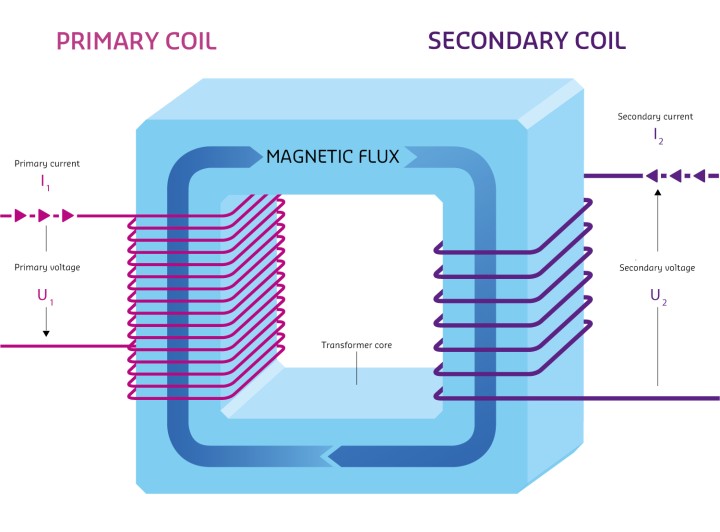Physics vs Electronics (Smartphone charger)
Physics Asked on December 12, 2021
Basically, an electric charger consists of a transformer, which transfers electrical energy from one inductance to another..

َAs i imagine the process physically the first circuit (inductance) should produce the same amount of magnetic flux, either the second inductance exist or not.. so, theoretically the electric consumption in (smartphone) charger should be the same (either we place a smartphone in the other side or not)..
But when i measured the current in the case of (no smartphone plugged in) i found it zero!
How we can interpret this physically?
2 Answers
In an ideal transformer (which has no DC resistance), and which has no current flowing from the secondary coil, the primary current will be small and out of phase with the applied voltage. Average power in and out are both zero. When AC current flows from the secondary, it causes a shift in the phase and magnitude of the flux and in the primary current. I have a digital meter that shows what is being supplied by a wall plug. With my phone charger plugged in at 120 volts without the phone it's showing 0.09 amps, 1 watts and a power factor of 0.09. Plugged into the phone it shows 0.11 amps 3.5 watts and a PF of 0.27 . Note: Average power = (rms) amps x volts x PF (where the PF is the cosine of the phase difference).
Answered by R.W. Bird on December 12, 2021
A transformer is not a charger. A transformer changes the voltage and current but it is of the same frequency, in the US 60Hz. An ac source cannot charge a battery because if in one half cycle of the 60Hz the source charges the battery then in the next half cycle when the polarity flips it will drain it. A battery charger needs a dc voltage: between the transformer and the battery there is a rectifier that is essentially a diode + a capacitor with a lot of other things. The transformer is there to change the input 110V (in the US) to a lower voltage that is "friendlier" to a diode and more importantly to a voltage near that of the battery to minimize losses in the rectification. When the primary is connected to an ac source but the secondary is open then the source sees an inductive load but it is still ac, so only an ac meter will work when you try to measure the current through it.
Answered by hyportnex on December 12, 2021
Add your own answers!
Ask a Question
Get help from others!
Recent Questions
- How can I transform graph image into a tikzpicture LaTeX code?
- How Do I Get The Ifruit App Off Of Gta 5 / Grand Theft Auto 5
- Iv’e designed a space elevator using a series of lasers. do you know anybody i could submit the designs too that could manufacture the concept and put it to use
- Need help finding a book. Female OP protagonist, magic
- Why is the WWF pending games (“Your turn”) area replaced w/ a column of “Bonus & Reward”gift boxes?
Recent Answers
- Joshua Engel on Why fry rice before boiling?
- Peter Machado on Why fry rice before boiling?
- Lex on Does Google Analytics track 404 page responses as valid page views?
- haakon.io on Why fry rice before boiling?
- Jon Church on Why fry rice before boiling?